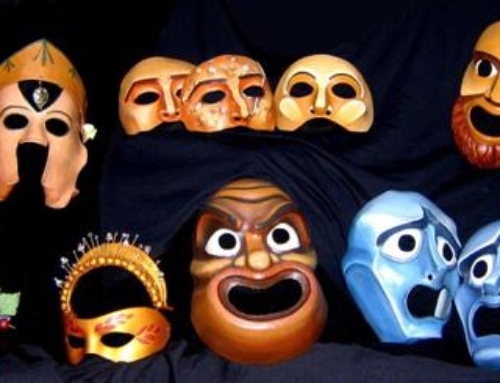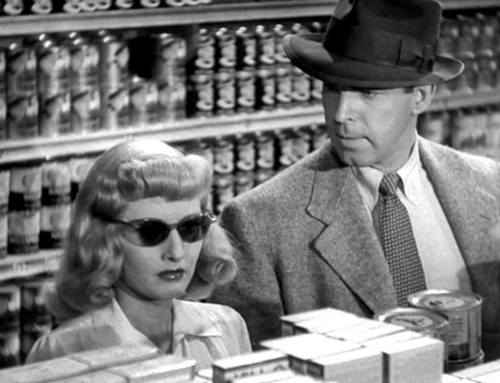Moralists make much of immorality in movies. They are disgusted by scenes of sex and the viewing of violence. The prude is horrified by all that is lewd and nude and crude and rude. In his horror at the horror what the moralist may miss is the deeper morality of most movies.
In The Ethics of Elfland–a chapter in Orthodoxy– G.K.Chesterton expounds on the deep truths that lie beneath fairy tales. It is true that Chesterton is writing about fairy tales, not movies, but I for one have long contended that the stories that once were told about babes in the wood are now told by Hollywood. The fantastic tales that were told around the flickering light of the fire are now re-told through the flickering light of the cinema screen, and the same moral principles that lie beneath fairy tales also lie hidden at the foundation of most mainstream movies.
Chesterton first observes that fairy tales illuminate a basic morality which is assumed in the world. To put it simply, there is a hero and there is a villain and they are in conflict. “There is the chivalrous lesson of “Jack the Giant Killer”; that giants should be killed because they are gigantic. It is a manly mutiny against pride as such…There is the lesson of Cinderella, which is the same as that of the Magnificat — exaltavit humiles. There is the great lesson of Beauty and the Beast; that a thing must be loved before it is loveable.” As with fairy tales, so with movies. Mainstream movies assume a basic morality, and the struggle between good and evil re-asserts the universal truth that human life is about the moral struggle.
But Chesterton believes fairy tales (and by extension movies) are more than merely moralistic fables. The portly prophet digs deeper and writes, “I am not concerned with any of the separate statutes of elfland, but with the whole spirit of its law, which I learnt before I could speak, and shall retain when I cannot write. I am concerned with a certain way of looking at life, which was created in me by the fairy tales…It might be stated this way. There are certain sequences or developments (cases of one thing following another), which are, in the true sense of the word, reasonable. They are, in the true sense of the word, necessary. Such are mathematical and merely logical sequences. We in fairyland…admit that reason and that necessity. For instance, if the Ugly Sisters are older than Cinderella, it is necessary that Cinderella is younger than the Ugly Sisters.”
When I trained as a screenwriter the teacher said that fantasy movies were perfectly possible, but that for a fantasy movie to be credible you had to have clear rules of behavior and being. You could devise whatever rules you liked, but you had to be perfectly consistent in their application. If your world had two suns, then everything solid had to have two shadows. otherwise your audience would not believe in your world. Therefore, the first reason why there is an underlying morality in movies is because the movie shows us a world that is reliable. The world of the movie, like the world of the fairy tale, operates on certain certainties.
This principle of necessity and consistency in the fairy story is likewise present in a movie. For the movie to work certain boundaries of reality are laid down. Certain necessary rules of engagement are established and certain traits of character and perceptions of reality are put in place. This must be so for the audience to make sense of what is going on. The necessity and consistency is like a grid that give the audience its bearings so the story can be understood. In this sense, the fairy tale and the movie are deeply, fundamentally moral. If there are necessities and consistent laws of engagement in the fairy tale and movie, then the audience is reminded that life itself has a certain necessity; that their own world operates according to established and consistent laws and that the natural world itself has certain predictable ways of behaving and being. Thus the fairy tale and the movie support and underwrite the assumption that there is such a thing as natural law.
This is deeply moral because morality springs from natural law. What is natural is moral. What is un-natural is immoral. The first moral principle, written into the foundational assumptions of the fairy story and the movie, is that suchy a thing as right and wrong exist.
The second moral principle that Chesterton explains is what he calls the “doctrine of conditional joy.” Chesterton writes, “according to elfin ethics all virtue is in an “if.” The note of the fairy utterance always is, “You may live in a palace of gold and sapphire, if you do not say the word ‘cow’; or “You may live happily with the King’s daughter, if you do not show her an onion… All the dizzy and colossal things conceded depend upon one small thing withheld. All the wild and whirling things that are let loose depend upon one thing that is forbidden…in the fairy tale an incomprehensible happiness rests upon an incomprehensible condition.”
Although fairy land and movie land operate according to certain rules, the hero of the story can and must make choices. Another absolute rule my screenwriter teacher taught us is that the action must never be taken out of the hands of the hero. The hero of the story has the power to change the outcome of the story. Deus ex machina endings are unsatisfactory. Fairy godmothers may appear, but their magic must never disable the hero and solve all the problems. Instead it must empower the hero and give him new choices. Chesterton says, “Cinderella received a coach out of Wonderland and a coachman out of nowhere, but she received a command — that she should be back by twelve.”
So fairy land and movie land operate according to certain principles and rules which remind the audience that their world also abides by certain rules, and to obey the rules is good and to disobey is bad. Fairyland and movie land also teach us that human beings can be heroes. The joy is conditional. Humans can make choices. They can behave well or behave badly and there are consequences of both.
The third principal is one of the heart. Chesterton tries to explain the joy he felt in reading fairy tales, “I am trying to describe the enormous emotions which cannot be described. And the strongest emotion was that life was as precious as it was puzzling. It was an ecstasy because it was an adventure; it was an adventure because it was an opportunity.” The joy he felt in fairy land is the same joy we experience at the movies. We call it entertainment, and the intellectual is prone to sneer at the simple pleasures of hoi polloi. Chesterton is on their side. He would approve of much if not most of the solid and joyful entertainment of the movies, for there he would observe artificial worlds that reflect the rules of this world and artificial heroes who remind each member of the audience that he can choose to be a hero, and in the deep subconscious experience of these moral truths there is joy and hope.
Linked with this is the satisfaction of the happy or just ending. Here Chesterton would nod in agreement with J.R.R.Tolkien who coined the word ‘eucatastrophe’ in his own essay on fairy tales. He said, “The ‘eucatastrophe’ or happy ending gives the deep impression that life itself has a happy ending, and if a happy ending, then a purpose and a meaning.” Chesterton ascribes these emotions as magical. They filled him with wonder and they became the foundation of all the rest of his thought. He writes, “These are my ultimate attitudes towards life; the soils for the seeds of doctrine. These in some dark way I thought before I could write.. I felt in my bones; first, that the world does not explain itself…”
And if it does not explain itself then who does? Thus the ethics of elfland and the morality of movies baptize the imagination. They keep alive the deeply moral truths that the world is consistent and operates on laws of reason; that choices for good and evil can be made, that each soul’s joy is conditional on that choice, and that all of it has meaning, and as Chesterton concludes, “… and meaning must have some one to mean it.”







[…] Morality of Movieland is posted in the Film and Television section, and leapfrogs from G.K.Chesterton’s observations in his “Ethics of Elfland”–comparing this to morality in movies. […]